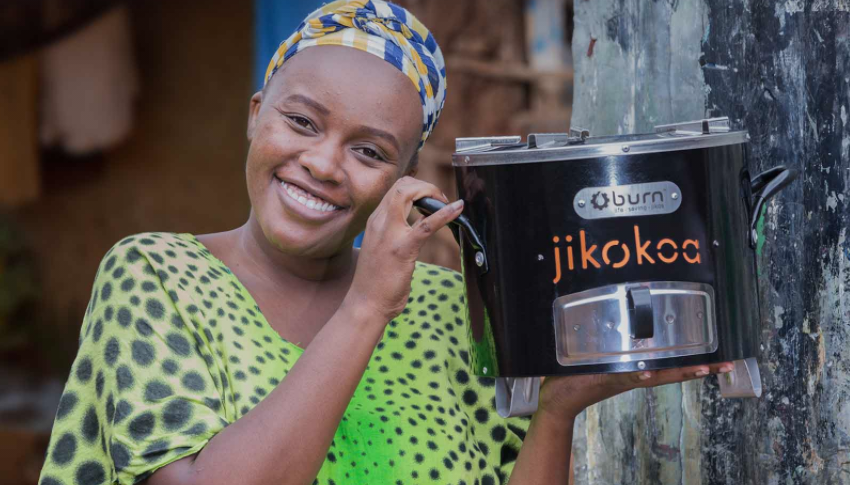In 2014, BURN launched its full first-of-its-kind manufacturing facility in Kenya, where it still remains the only vertically integrated modern cookstove company in Sub-Saharan Africa.
The solar-powered facility currently has a capacity of 55,000 stoves per month and employs over 400 people, 60 percent of whom are women.
Over the last 7 years, BURN has built a profitable business while proving that cookstoves can deliver transformative social, financial, and environmental impacts.
A recent study done by the University of California at Berkeley shows that a US$40 household investment to purchase a Jikokoa (a BURN-designed stove) generates a staggering US$1,000 economic return for society.
In Kenya, 80% of all rural and urban households use either wood or charcoal for cooking, BURN’s two core products- the Jikokoa & Kuniokoa serve both of these markets.
BURN targets low- and middle-income customers, but even higher-income customers use charcoal for special meals. “Our customers purchase the stove for fuel savings but love it because of the reduction of indoor air pollution and the improved cooking experience.”
Over the past few years, BURN has grown the factory from the original 20,000 square feet to 53,000 square feet, BURN is currently selling 25,000 units per month with the capacity to produce 55,000 stoves and are on track to reach 90,000 stoves per month in 2021.
“We have gone from being a single-product/single country business to one that has eight different products marketed across 13 countries,” said BURN.
BURN has expanded its product line to include not only biomass stoves but also electric, LPG, and hybrid biomass+electric cookstoves.

